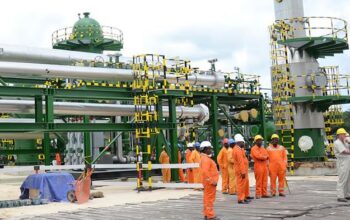Angola’s departure from the Organization of Petroleum Exporting Countries (OPEC), announced last week by the Government in Luanda, gives the State greater autonomy in collecting the revenue necessary for economic growth, at a time when projects designed to reverse the natural decline in oil production.
These statements were made by the chairman of the Board of Directors of Prodoil (an Angolan oil company with private capital), Pedro Godinho, in statements when reacting to the announcement of the abandonment of the block of producers, considering it “a right measure”, because OPEC has been of little help in resolving the financial problems the country has been experiencing.
Also president of the Angola-United States of America Chamber of Commerce (AMCHAM), Pedro Godinho maintained that OPEC has only a dozen members, when most oil producers outside the organization benefit from the sale of hydrocarbons, on the contrary of those who are obliged to sell based on quotas imposed by the organization.
Pedro Godinho argues that market prices should be defined by the binomial demand and supply, but the role of cartels is to seek to establish a ceiling with rules that most benefit the bloc’s leaders, in addition to the fact that contributions and cuts in production often contrast , with the interests of its members who seek to strengthen their economies.
“Non-OPEC countries benefit more because they trade oil regardless of price, without being subject to limits on their quotas, which means that the measures implemented by the organization are also beneficial to them.
In this case, Angola will no longer be obliged to limit the production of a resource of extreme importance for the desired growth”, he said.
Pedro Godinho warns that Angola’s departure will not be well digested by OPEC, especially because the country has already assumed the rotating presidency of the organization, so there may be some resentment on the part of members of the bloc, in particular Saudi Arabia, the organization’s mainstay and known for its extreme measures to safeguard its interests.
“In 2016, Saudi Arabia flooded the market with production in the order of 1.3 million barrels per day, a fact that led to the price falling to 30 dollars, just as, in 2019, in agreement with Russia, it made available two million barrels per day which were the basis for the price drop from 60 to less than 36 dollars, to, two years ago, cut two million barrels per day”, he recalled.
Opportunities and challenges
Professor of Economics at the Faculty of Economics of the Agostinho Neto University (UAN) Mário Ndala said, for his part, that Angola’s withdrawal from OPEC constitutes a strategic step that has beneficial implications for the country’s oil and economic scenario.
According to the academic, this measure gives Angola greater autonomy in managing its oil production, which means that the country will have the freedom to increase or reduce production according to its economic needs and market strategies.
“This can be beneficial, especially in times of fluctuations in oil prices, allowing Angola greater flexibility in adapting to global market conditions,” he said.
Mário Ndala recognizes that the decision also involves risks, as Angola benefited from OPEC production agreements that influenced oil prices, so that, with the withdrawal, the country will be subject to the volatility of oil prices on the international market, which which could affect its oil revenue and, therefore, the economy.
Angola’s departure, added the economist, could also have an impact on diplomatic and commercial relations with other OPEC member countries.
Bilateral negotiations and agreements in the energy sector may be affected, requiring a reassessment of existing partnerships and the search for new opportunities for collaboration.
“Angola’s decision to withdraw from OPEC is a bold step that brings with it opportunities and challenges. The final impact will depend on the country’s ability to successfully navigate this new scenario and adapt to the global dynamics of the oil market”, he concluded .
![]()




